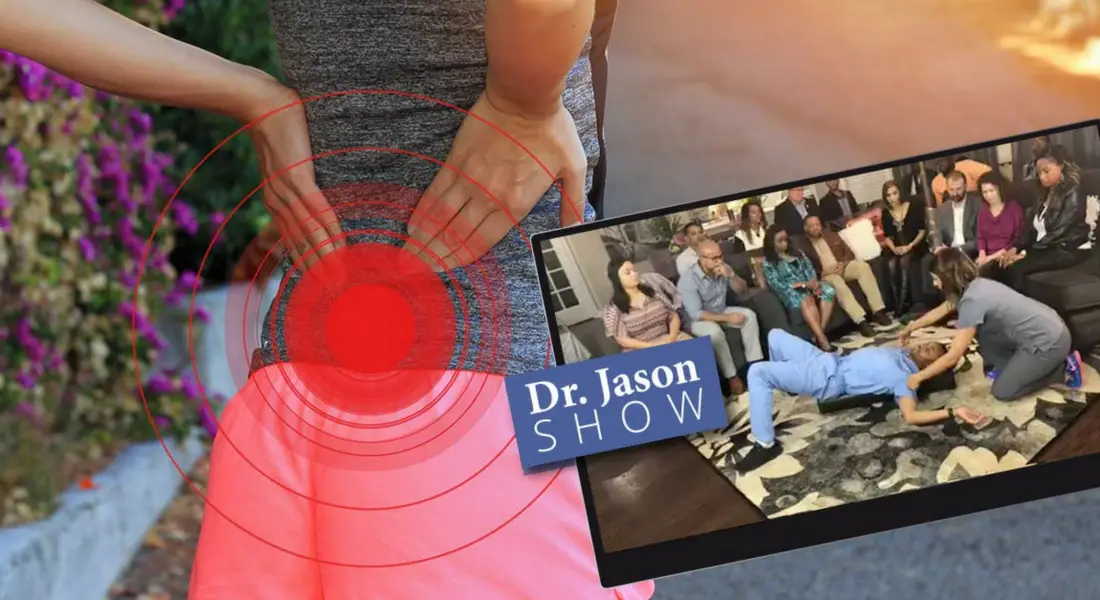Making efforts to improve your posture and back alignment is a smart move. Without proactively correcting it, we all gradually shift more and more out of alignment. We may begin to slouch at our shoulders, our head sometimes starts hanging further forward, our stance can become crooked, and other aspects of our posture go out of whack.
Increasingly poor posture and spinal alignment happens as a natural byproduct of our lifestyle. If you spend hours every day hunched over a computer or your phone, your muscles adapt to the positions they find themselves in so often, and that becomes their normal resting position. Then there’s your arm extended to operate the mouse all day long; the muscles throughout your arm essentially become reprogrammed. And your muscles in turn hold your bones and joints in place.
If you make the same repetitive motions every day, that too trains your muscles to rest in certain places that are off from where they should be. Even athletes in peak physical condition are affected. Running, swinging a tennis racket, and other repetitive motions take a toll on posture and alignment, even though they generally promote fitness.
Good Posture Matters for Back Alignment
If you think getting out of alignment is no big deal, unfortunately it is. For many people, poor posture is a major unsuspected source of all sorts of chronic pain. It easily leads to headaches and discomfort or pain anywhere in the upper, mid, or lower back, the neck, and the joints. It also affects the way you walk, stand, and sit, as well as your range of motion and flexibility. Plus, it compresses nerves. All of this may prompt aches, pains, stiffness, and tension throughout your body.
Poor posture can also interfere with quality sleep, energy levels, and your ability to efficiently burn fat and build muscle. For some people, hunching around the shoulders constricts the lungs and makes it more difficult to breathe. When posture and alignment get really bad, it can even throw off other system functions, especially your digestive system.
The way you carry yourself physically may also reduce your confidence and cause people to perceive you differently. Good posture sends subconscious signals of health, vitality, strength, stamina, being self-assured, and competence; noticeably bad posture may send the opposite signals.
Ways to Fix Your Posture and Spinal Alignment
- Consult a chiropractor. There’s no substitute for professional adjustments and advice personalized to your specific alignment issues, general condition, and lifestyle.
- Start stretching at least once per day. Start with these basic stretches recommended by the Mayo Clinic, and also take a look at my important information about stretching.
- Get up from your desk and walk around for at least a few minutes every hour or two if you sit all day; alternatively, make time to sit (sit up straight!) for a few minutes periodically if you’re on your feet all day.
- Sit with a small pillow or rolled-up towel behind your lower back while seated at your desk and keep your back straight and shoulders pushed back.
- Interlock your fingers and put your hands behind your head with your elbows pointed out to your sides. Push your elbows back from your shoulder blades as far as they’ll go and hold it for up to 3 minutes (don’t hurt yourself and build up gradually… it takes time to get muscles into shape for these exercises).
- Lie down on the floor with your back as straight as possible and slowly mimic the motion of making snow angels for up to 3 minutes.
- Use a foam roller for alignment exercises. Start with the demonstrations from this recent episode of The Dr. Jason Show, in which I talked with chiropractor Dr. Yanina Genao.
- Do the Bruegger’s exercise, which you can also see demonstrated in the video above.
- Stand up straight against a wall with your toes pointed forward. One leg at a time, lift your knee until your thigh is parallel to the floor. Hold this pose for up to 30 seconds.
- Take up yoga, tai chi, pilates, or another activity that focuses on strengthening your core and improving alignment.
- Do these core-strengthening, posture-boosting exercises from WebMD.
- Lift weights and perform resistance training to strengthen muscles—particularly those throughout your body that are underused.
- Eat a diet rich in calcium and vitamin D to promote bone health. This becomes increasingly important as you age. If you’re worried about your intake, or if you’re post-menopausal, talk to your doctor about supplements.
Originally posted on www.jasonmd.com
Jason Littleton, MD
Jason Littleton, MD is a board-certified family physician offering convenient concierge healthcare. He emphasizes personal attention, prevention, and smart lifestyle choices for optimal health, wellness, energy, youthfulness, longevity, balance, and happiness. He encourages patients to eat nutritiously and focus on fitness, providing clear, practical, personalized guidance for doing so in our busy lives.
Dr. Littleton earned his MD from Michigan State University College of Human Medicine and a BS in Biology from the University of Michigan. In 2010, he received National Doctor’s Day Recognition from the Practitioner Excellence Committee for “compassionate and excellent care” of patients at St. Mary’s Hospital in Grand Rapids, MI. He also received the Resident Teacher Award as a family medicine resident. Today, Dr. Littleton serves patients in the Orlando area.
Additionally, Dr. Littleton is CEO of WellSpring Human Energetics, author of WellSpring: The Energy Secrets to Do the Good Life, an in-demand motivational health speaker, and frequent guest commentator on national television programs and in national print publications.
Learn more about Dr. Littleton at www.jasonmd.com





















